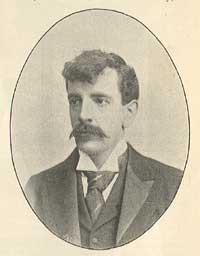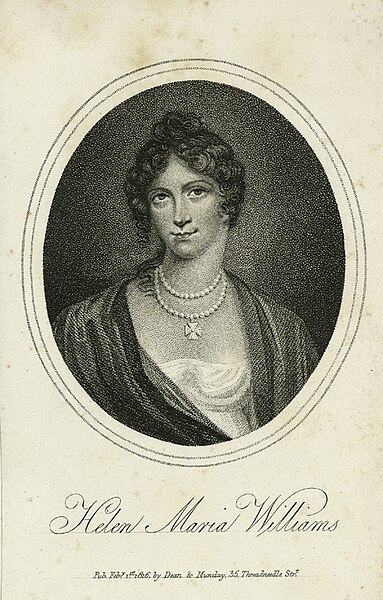
Dr. Arthur Beale
Why I Oppose Vivisection
「1896-Jul」Dr. Arthur Beale, “Why I Oppose Vivisection, No. 12,” Animals’ Friend Magazine 2 「Google BookS」(1896 Jul): 174-175; Online at Animal Rights History 2003.
Dr. Arthur Beale in “Why I Oppose Vivisection,” convinced that “vivisection is「not」important, useful or justifiable,”
bases his argument on both scientific and moral reasons.
I…oppose vivisection to–day from a strong conviction—first, that it is a course entirely at variance with true culture and the progress of society; second, that it is a method of research entirely unscientific; third, that it accumulates facts which, as honourable members of my own profession have said, are not only useless but directly harmful, as they only confuse the mind; fourth, on moral grounds.
If we grant that vivisection is necessary, man is the proper medium— experiments on animals are so confusing.
I unhesitatingly say that if he who declares vivisection to be necessary will not yield his own living body to the knife, but instead secures an inoffensive animal for the purpose, and then dares to say this is for the sake of humanity, he is no scientist, but an arrant coward and hypocrite.
_________
WHY I OPPOSE VIVISECTION No. 12.—BY DR. BEALE.
LIKE most members of my profession, I was nurtured in the belief that vivisection is an important, useful, and justifiable adjunct to medical science. But reflection and experience have convinced me to the contrary. I therefore oppose vivisection to-day from a strong conviction—first, that it is a course entirely at variance with true culture and the progress of society; second, that it is a method of research entirely unscientific; third, that it accumulates facts which, as honourable members of my own profession have said, are not only useless but directly harmful, as they only confuse the mind; fourth, on moral grounds. Besides being an unnatural procedure, it is one that is pernicious alike to the experimenters and to society, and an abuse of our powers over the animals.
I maintain that vivisection is at variance with culture and progress, because for true culture and progress the great essential is healthy sentiments with a strong altruistic motive, i.e. one where all personal gains are subservient to the summum bonum of the community, to humanity at large. It is indeed sentiment that makes man what he is, and the obligations between individuals are greatly heightened by the obligations felt to protect those below and weaker than themselves, especially the animals. Now vivisectors repudiate all sentiment, which they speak of as “sloppy,” and to this degree they keep back the highest culture and progress.
Vivisection is unscientific, since, if science means anything at all, it means knowledge. True knowledge not only requires observation of phenomena, or effects, but the interpretation of such in relation to other phenomena. Vivisection has acquired and registered certain facts. But that no real knowledge has resulted from the observation of such phenomena must be patent to any unprejudiced person who has taken the trouble to read both sides of the question. Prof. Lawson Tait’s refutations of the vivisectors’ assumptions of the utility of vivisection must appeal very strongly to the profession and to the laity, and stand to–day unanswered.
The claims made on behalf of vivisection are, I maintain, misleading and contradictory. It is such a practice as this which makes medicine an art perhaps, a science never. We have lost the key that would permit us to know anything of disease per se. This age of medicine is one of dry empiricisms and guesswork. No one can say for certain what is the cause of disease. We make some shrewd guesses and are satisfied, till a more shrewd guess upsets us. We think, but we do not know! Vivisection does not help us, it only makes the confusion worse by adding contradictory evidence. This is not science. It deals with superficial facts, whilst the real operations are working beyond the ken of the medical five senses.
As an example of the confusion so caused might be mentioned the following:—For generations calomel was a trusted drug for specific purposes, but especially for its supposed action on the liver, till Dr. Rutherford, of Edinburgh, declared, that every one in the past had been wrong, on the strength of the results of his painful experiments on dogs, and these experiments proved beyond doubt, to the professor, that this drug had no effect on the liver. But Mr. Jonathan Hutchinson, a surgical authority we cannot ignore, declined to assent to this view, and in The Archives of Surgery (January, 1893) says:—
“In the present unsettled faith in drugs we cannot afford to neglect items of evidence from any witness. It is not so long since we were told,
‘as the result of conclusive experiments,’
that it is a mistake to believe that mercury has any action on the functions of the liver. So far am I from putting any faith in such conclusions that I look forward with hope to a return of the time when calomel enjoyed the confidence of the public as well as that of the profession.”
Other vivisectors found that the useful ingredient of lemons (citric acid) acted as a most deadly poison on cats and dogs, and yet it had only beneficial effects on man. Such experiments convince me that vivisection proves everything and nothing. Common salt, we are told, on the authority of intelligent men, if given in very attenuated doses, has been known to produce poisonous results, and yet we will carelessly take large quantities regularly. All this points to the fact that we know practically nothing of the laws that control the effect of drugs on the body. What, indeed, shall we say of those dangerous animal poisons that vivisectors are so proud of ? We are expected to swallow (metaphorically) all the nonsense that comes with such experimental filth as anti-toxin, Koch’s consumption cure, Pasteur’s nostrum for hydrophobia, etc., and yet we own we know nothing of the direct effects of these things ; not one is a reliable preventive or protection, and most are dangerous.

After all, the question is a moral one. It is Might not Right that gives the animals into the power of the vivisector. If we grant that vivisection is necessary, man is the proper medium—experiments on animals are so confusing—and no man more appropriate than him who is so ardently in favour of the practice. I unhesitatingly say that if he who declares vivisection to be necessary will not yield his own living body to the knife, but instead secures an inoffensive animal for the purpose, and then dares to say this is for the sake of humanity, he is no scientist, but an arrant coward and hypocrite. But I believe the apparent sanction of many disciples of Esculapius to this practice is due to an indifference to the subject, and many hundreds in their hearts feel a keen repugnance to it, whilst not caring to expose their opinions. Have I not heard that bold and devoted champions of this cause have been treated most insultingly and unprofessionally. We must never let the esprit de corps interfere with our duty to the public, to Humanity, and to Truth. We have no ill-feeling to vivisectors, but we regret the blindness that holds them to their task and which makes them dispensers of suffering and injustice to the dumb. We must learn to wander back to the true path of service that knows no harshness ; to teach the suffering humanity how to keep well and live well, and then vivisection and its nauseating details will go.
ARTHUR A. BEALE, M.B., C.M. 175, Clapham Road, S.W.
Photo caption: ARTHUR ARNOLD BEALE, M.B., C.M.



